Thy lamb, Julia, O Jesus, doth cry unto thee with a loud voice, saying, My Bridegroom, I long for thee and in struggles seek thee. I am crucified and buried with thee in my Baptism, and for thee I do suffer until I reign with thee. I die for thee that I may live in thee. Then as a sacrifice without blemish receive her who for thy sake was slain. Through her intercessions, therefore, since thou art merciful, save our souls.
Today, May 23, we celebrate the feast of Saint Julia of Carthage (also known as Saint Julia of Corsica or Saint Julia of Nonza, died 620), virgin and martyr of the Church. The life of Saint Julia was recorded in the early seventh century, although the facts are somewhat unclear. Saint Julia may have lived as early as the fourth century, although some historians place her martyrdom in the seventh. Regardless of when she lived, her faith and confidence in the Lord, despite torture and martyrdom, remain inspirational today.
Julia was born of noble aristocratic parents in Carthage (South Africa). This ancient city, founded by the Phoenicians, competed with Rome for domination in the western part of the Mediterranean. Given the high-profile nature of the city, it was also subject to numerous barbarian attacks, and the city’s defenses had crumbled. During one attack by the Vandals, Julia was taken from her family, and sold into slavery. Despite her dire circumstances, she did not complain or feel sorry for herself. Rather, Julia accepted everything as a gift of the Lord, and performed the most humble tasks with wonderful cheerfulness. In her spare time, she read holy books and prayed fervently, so ardent was her love of God.
Having grown into a beautiful and pure young woman, she was quickly purchased by a pagan merchant named Eusebius, and taken with him to his home in Syria. Given her loveliness, he desired to make her into his mistress, but she declined, withstanding compliments, bribes, and eventually threats.
Rather than anger Eusebius, Julia’s resistance, strength of character, and intelligence earned her master’s respect. She accompanied him on business trips, where he took advantage of her skills. During one trip, the two were shipwrecked, but managed to survive and swim to Corsica.
Upon arrival in Corsica, the local governor suggested the pair attend a pagan festival, during which they would sacrifice to the gods for their salvation. However, Julia, given her love of the Lord, refused to attend the festival. Eusebius respected her decision, but the local governor, Felix, demanded she participate in the ceremony. "Who is that woman who dares to insult our gods?" he cried. Eusebius explained that she was a Christian. He further added that although he had not been able to make her give up her religion, still was such a good, faithful servant that he would not know what to do without her.
"I will give you four of my best women slaves for her," offered the governor, but Eusebius refused.
"No," he said, "All you own will not buy her. I would willingly lose the most valuable thing in the world rather than lose her."
So, Felix prepared a banquet, and waited until good Eusebius became intoxicated and fell asleep. Finding Julia alone and undefended, he governor tried to make Julia sacrifice to the gods. He promised to have her set free if she would comply, but she refused.
Julia stated:
Libertas mea Christi servitium est, cui ego quotidie pura mente deservio. Ceterum istum vestrum errorem non solum non veneror, verum etiam detestor.
"My liberty is the service of Christ, whom I serve every day with a pure mind. As for that error of yours, I not only do not venerate it, I detest it."
Felix was enraged. He had her struck on the face and all her hair was torn from her head. When she failed to renounce Christ, she was nailed to a cross and thrown into the sea to drown. The cross with her body drifted to the island of Gorgona where a Benedictine abbey was located. The monks rescued her relics, and adoration began. Accompanying the cross, as holy legend tells us, was a note (written in angelic hand) which carried her name and story. The monks transported her relics to a sepulcher, which was eventually translated to the Benedictine abbey at Brescia. From there, her cultus spread over the northwestern part of the Italian Peninsula.
The life of Saint Julia is remarkable in two ways. First, she cheerfully bore all that life gave her, looking to the Lord as her strength and the source of her blessings. Forced to give up an aristocratic and privileged life, she happily embraced slavery and cheerfully performed all tasks demanded of her. Second, when confronted with her own torture and death, she remained firmly rooted in her faith and love of the Lord. Despite the difficult life she endured, she was willing to give up all that she had to testify to her faith. We are inspired on both counts. When our lives are difficult, and there are seemingly unmanageable obstacles encountered, how frequently are we able to turn to God and say ‘thank you?’ Might we find a way to offer our difficulties to the Lord, and see the struggle as a testament to our faith?
Jesus,
owing to Your death on the cross
and Your resurrection,
the faithful have a hop for eternal life
that lets them boldly counter life hardships.
Let the example of St. Julia be a motivation for us
to stay by You for ever.
You live and reign for ages and ages.
Amen.
Year 2: Day 143 of 365
Prayer Intentions: Thanksgiving for all the Lord gives us.
Requested Intentions: Husband’s freedom from illness (L); Personal intentions (S); Successful passing of dental board examination (P); Blessings on a family (Z); Successful permanent employment (C); Healing of a son with autism (J); Son’s successful employment (L); For the intentions of family and relatives, for the Carthusian community (T); For personal intentions (A); Restoration of lost hearing (C); Resolution of relational and financial challenges (S); Comfort following loss of husband, security for family, assistance with housing (B); Healing and return of brother (O); Successful hermitage foundation (S); Support from family, permission to marry (H); Recovery of wife following surgery, freedom from depression (W); Protection and recovery of mentally ill daughter (J); Successful resolution to legal proceedings (N); Freedom from worry and successful employment (M); For successful sale of home and freedom from debt (J); Freedom from pain and illness (E).
Why pray the Rosary every day for a year?
Each time the Blessed Virgin has appeared-- whether it be to Saint Bernadette Soubirous at Lourdes; to Lucia, Jacinta, and Francisco at Fatima; or to Mariette Beco at Banneux-- she has asserted the importance, saving grace, and power of praying the Holy Rosary on a daily basis. Based upon her words, the Rosary is penance and conversion for sinners, a pathway to peace, an end to war, and a powerful act of faith in Jesus Christ. Pope Paul VI presented the Rosary as a powerful means to reach Christ "not merely with Mary but indeed, insofar as this is possible to us, in the same way as Mary, who is certainly the one who thought about Him more than anyone else has ever done."
To show us how this is done, perhaps no one has been more eloquent than the great Cardinal Newman, who wrote: "The great power of the Rosary consists in the fact that it translates the Creed into Prayer. Of course, the Creed is already in a certain sense a prayer and a great act of homage towards God, but the Rosary brings us to meditate again on the great truth of His life and death, and brings this truth close to our hearts. Even Christians, although they know God, usually fear rather than love Him. The strength of the Rosary lies in the particular manner in which it considers these mysteries, since all our thinking about Christ is intertwined with the thought of His Mother, in the relations between Mother and Son; the Holy Family is presented to us, the home in which God lived His infinite love."
As Mary said at Fatima, "Jesus wants to use you to make Me known and loved. He wishes to establish the devotion to My Immaculate Heart throughout the world. I promise salvation to whoever embraces it; these souls will be dear to God, like flowers put by Me to adorn his throne."

Subscribe to:
Post Comments (Atom)






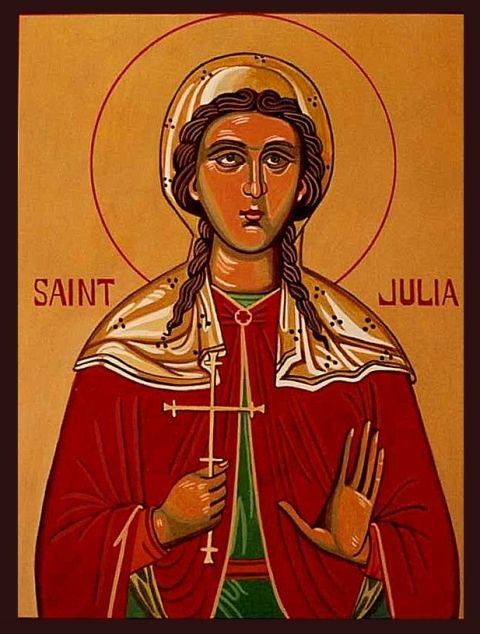
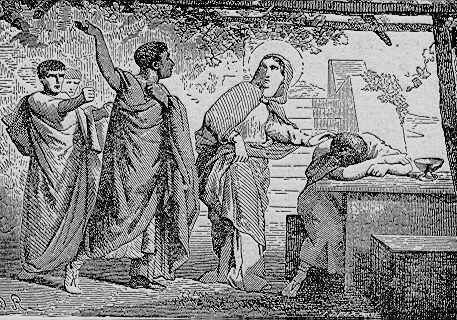
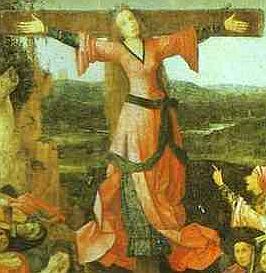
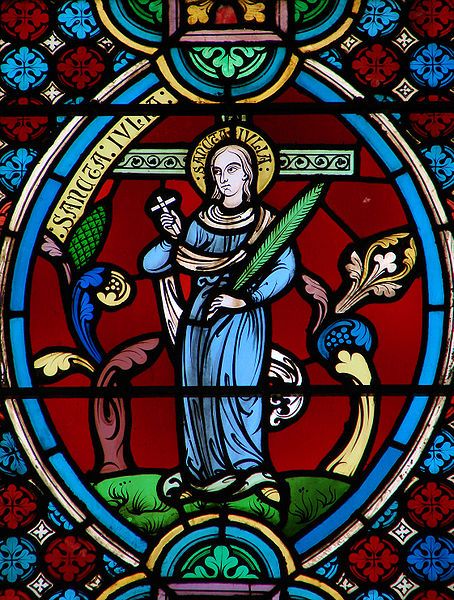


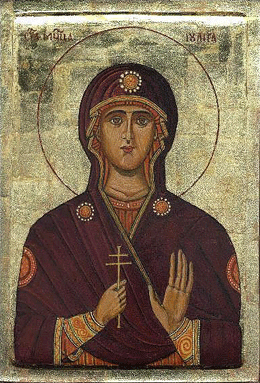

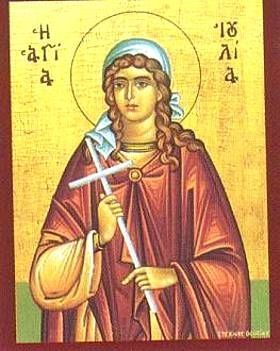
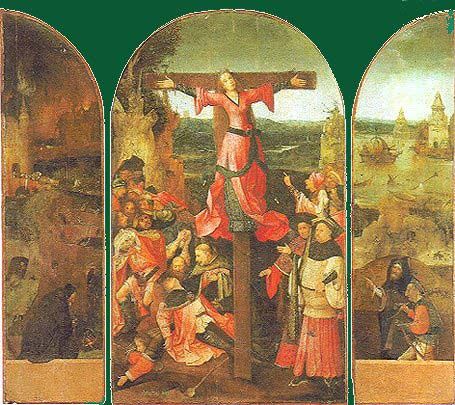
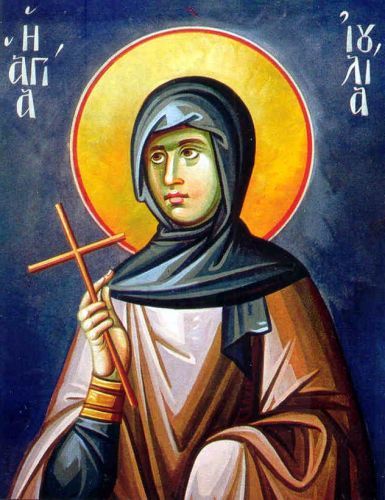
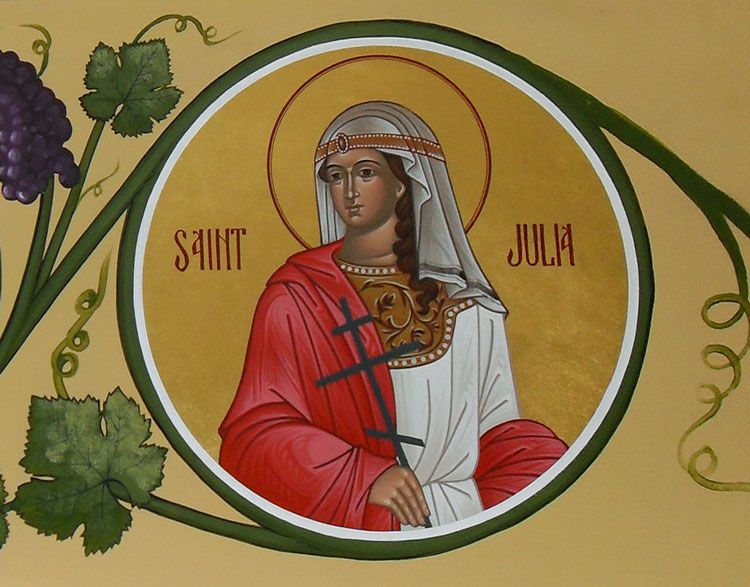
0 comments:
Post a Comment
Thanks for leaving a comment. If you wish to submit a prayer request, however, please do so above, using the "Contact" tab.